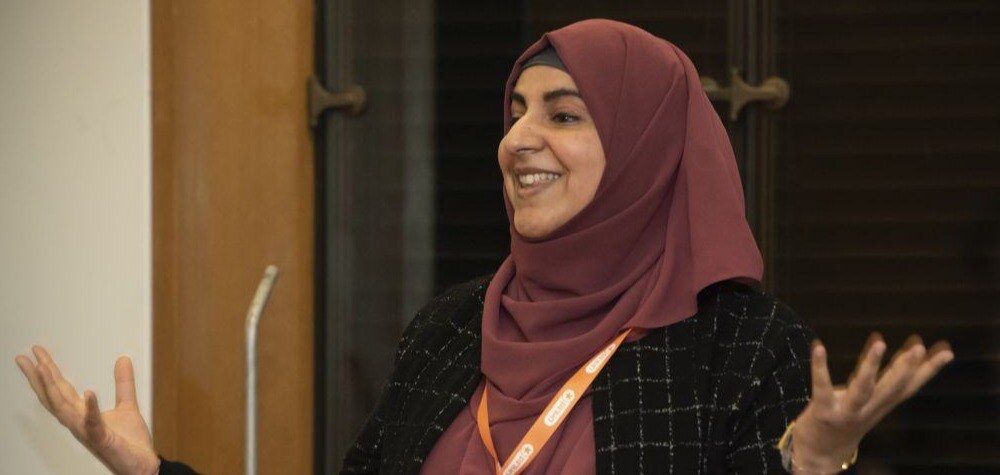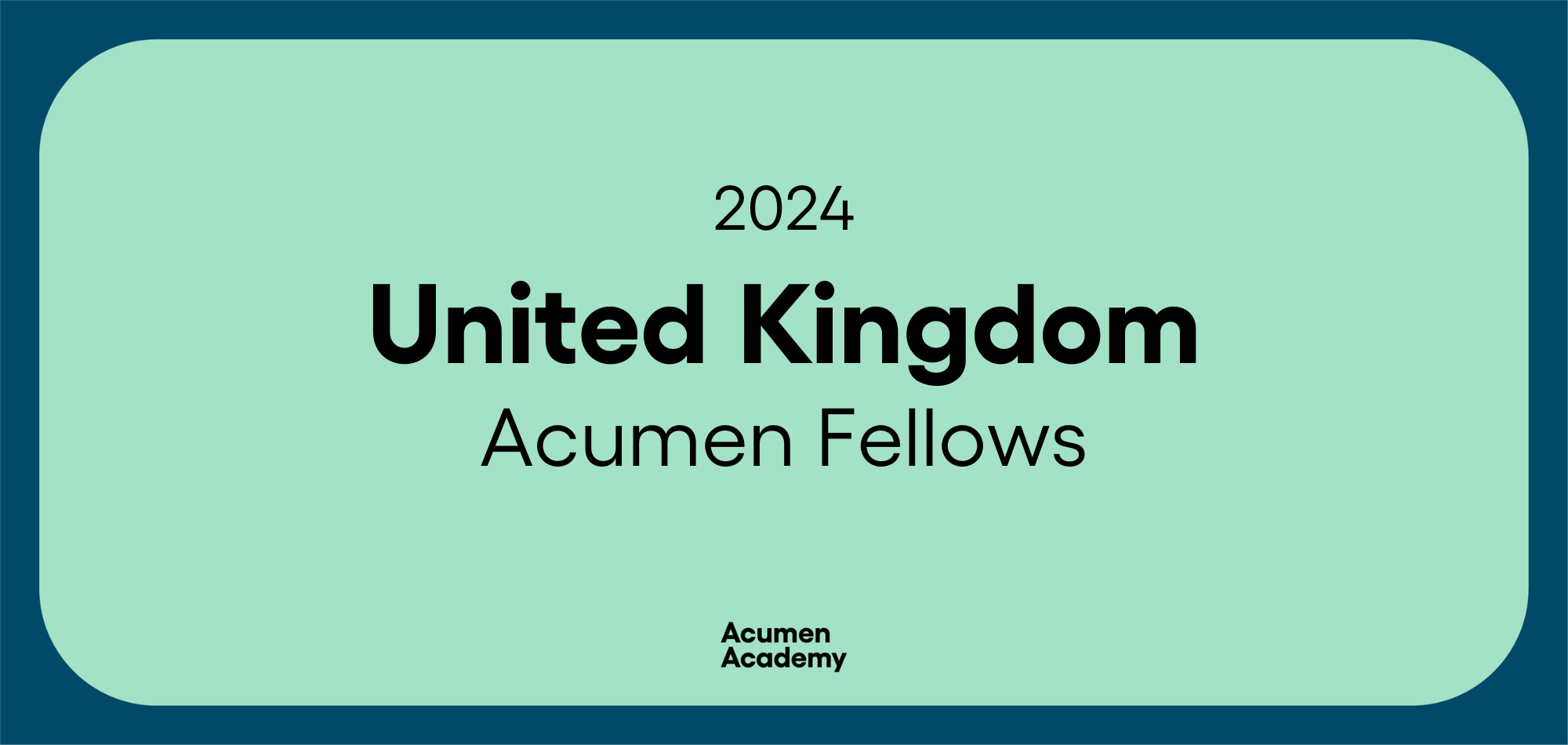Leadership
Leadership in action: what behaviours are needed to build a world rooted in dignity?
9 mindsets and behaviors UK Acumen Fellows say are critical to sustaining their social impact work.
May 14, 2025-2.jpeg)
Leading efforts to tackle poverty and inequality demands more than just strategy and skill. It calls for resilience, creativity, adaptability, and deep compassion. In a world of complex, shifting challenges, social impact leaders must draw on their inner strength to navigate uncertainty, hold onto hope, and stay true to their mission. This blog explores the essential behaviors and mindsets that sustain Acumen Fellows who are building a fairer, more dignified future.
A shared vision
Impact doesn't happen in silos. A shared vision builds momentum, invites collaboration, and ensures alignment across diverse players. When the vision is co-owned, people feel more invested and empowered to drive it forward.
Adaptivity
Social impact leaders operate in complex ecosystems — navigating stakeholders from funders and policymakers, to beneficiaries and communities. Being adaptable ensures they can pivot, co-create with stakeholders, and respond to change without losing sight of the mission.
Belief in your mission
When challenges mount, belief in the mission becomes the anchor. It motivates perseverance, inspires others to follow, and creates clarity in times of uncertainty. It’s also what keeps the organization aligned in a sea of potential distractions.
Compassion
Compassion fuels inclusive leadership. It prevents burnout, nurtures empathy-based decisions, and creates psychologically safe environments for teams and communities. Compassion is also critical when conversing with those who hold opposing views, allowing discussions to take place on a human level.
Creativity
Wicked problems like inequality, healthcare access, or climate change don’t have one-size-fits-all solutions. They require out-of-the-box thinking, experimentation, and an ability to connect dots that others might miss. Creativity enables innovation where tradition fails.
Driven by values
Leading with values is a critical skill for social impact. Especially during challenging times — when it might even feel costly or inconvenient. Staying true to a set of values builds trust, integrity, and authenticity. It's what makes the impact not just effective, but enduring.
Holding onto hope
Hope is what sustains social movements. Believing there are good people around you and creating space for them is part of being a good leader. Leaving behind something truly meaningful is about planting seeds for change you might not see yourself, but knowing others will carry it on.
Resilience
Tackling complex issues of poverty is tough. It often means challenging entrenched systems, navigating limited resources, and facing slow progress. Resilience keeps leaders going when results are delayed, funding is uncertain, or setbacks arise. It's the backbone of long-term impact.
Self-reflection
Self-awareness is key to growth. It helps leaders uncover their blind spots, learn from mistakes, and stay grounded in humility. Reflective leaders lead with intentionality, not ego — which is important for human-centered work.
True leadership when tackling complex issues of inequality is not about quick wins or easy solutions — it’s about staying resilient in the face of setbacks, adapting with courage, leading with compassion, and holding fast to your values and vision. It’s about believing in change even when the road is uncertain, and nurturing the hope that others will carry the mission forward. By embracing these behaviours, today’s leaders can build not just impactful organizations, but movements rooted in dignity, justice, and lasting transformation.
Learn more about how the Acumen Fellowship equips leaders solving issues of poverty with the skills to reimagine systems and build a society based on dignity.


-1.png)